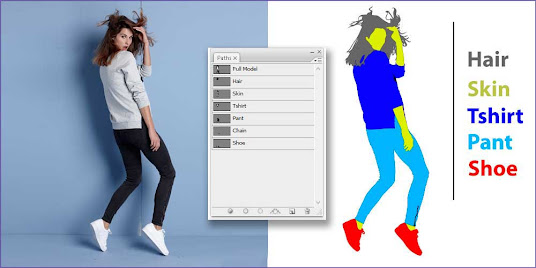Multiple Clipping Path

Multiple clipping paths, also known as compound clipping paths or complex clipping paths, are used in image editing to create various levels of transparency or cut out multiple objects from their backgrounds. This technique is commonly used in graphic design, advertising, and e-commerce industries to achieve intricate image masking and isolation effects. The process involves defining multiple clipping paths around different parts of an image, each creating a separate area of transparency. By doing so, you can effectively hide or reveal certain portions of the image, allowing for precise control over the visibility and composition of various elements within the picture. Here's a step-by-step explanation of how to create multiple clipping path using popular image editing software like Adobe Photoshop: Open the Image : Start by opening the image you want to work with in Photoshop or any other image editing software that supports multiple clipping paths. Create Clipping Paths : Use th...


